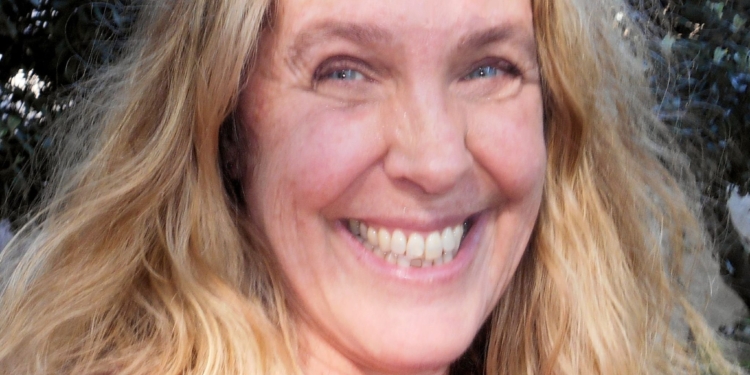
You can choose the level of self which you observe, and this holds the keys to selecting realities. Awareness that at an ultimate level, the only actions of substances are changes of perceptions is philosophical, and this was a matter of great interest to the philosopher Leibniz. Leibniz viewed apperception as “consciousness, or the reflective knowledge of this internal state.” He adds that this is “something not given to all souls, nor at all times to a given soul.” Some consider Leibniz to be the grandfather of artificial intelligence, since he conceived of human cognition in computational terms, with human cognitive processes following determinable axioms of logic.
This skill of being self-aware can be further developed through meditation. We can learn that we are not those thoughts nor those feelings. For example, we can meditate to gain the ability to learn to see our thoughts and feelings go by, like clouds in the sky.
We can practice identifying with being the Observer of those thoughts and feelings–more like the Driver in a car, the Captain of a ship, or the Pilot in a plane. For those of us who are spiritually oriented, we can experience a difference between our daily, egoic self–the one concerned about personal safety and experiencing various kinds of pain–and our infinite, eternal Self.
This is also where things get interesting, thanks to the Observer Effect.
Observer Effect
In quantum physics, the observer effect is the principle that an observer's choice of when, where, and how to make a given observation absolutely influences what is subsequently observed. Scientific experiments confirmed in 2019 that two observers watching the same event at the same place and time are absolutely capable of witnessing two different things, as I previously described, in my blog post: physics experiment challenges objective reality.
Our decision of how we choose to observe can be viewed as asking Nature a question, as physicist John Archibald Wheeler surmised.
Value of Subjective Reality
In most cases where we notice a reality shift or Mandela effect, we remember a distinctively different event or thing than is now accepted as being historically true. We do not typically recall several different realities, but usually just one or possibly two. There appears to be a tendency for most people observing reality shifts and Mandela Effects to be aware of binary (two-option) scenarios. For example, some people remember first hearing of Nelson Mandela's death while he was incarcerated in prison in the 1980s–while others first remember hearing of his death in December 2013. Another example is that some people remember the Star Wars character, Darth Vader, saying “Luke, I am your father”–while others recall him saying, “No, I am your father.” There also exist some examples of Mandela effects and reality shifts where more than two realities are recalled. One such example appears in the case of the restaurant chain Chick-Fil-A, which some people recall having previously either being: Chic-Fil-A or Chik-Fil-A.
Our Many Minds
Our assumption that each one of us exists as a unified individual may not be true. Carl Jung once said, “The so-called unity of consciousness is an illusion… we like to think that we are one, but we are not.” George Ivanovich Gurdjieff emphasized the point that man has no single big “I”; man is divided into a multiplicity of small “I's.”
Carl Jung adopted an intriguing theory of personality, no doubt influenced by his observation of a young cousin who had multiple personality disorder.
“When Carl Jung was still a university student in Basel, he was intrigued by the behavior of a female cousin aged fifteen and a half who began to exhibit signs of multiple personality. She would become suddenly pale, sink slowly to the ground (or a chair), then begin to speak in a manner completely unlike her everyday self. Instead of her usual Swiss dialect, she spoke literary German in a smooth and assured manner. Various spirits claimed to speak through her mouth,* and her mannerisms changed completely as different ones ‘took over.’” Of the “various spirits” that spoke through her, Colin Wilson tells us, “One of them claimed to be her grandfather who had been a banal and sanctimonious clergyman. Another was an inane chatterer who flirted with the ladies who came to the ‘séances.’ Another, who claimed to be a nobleman, was an amusing gossip who spoke High German with a North German accent.” Jung observed that when his cousin held séances, she took on a countenance quite different from her normal appearance and manner: “She could talk so seriously, so forcefully and convincingly, that one almost had to ask oneself: Is this really a girl of fifteen and a half? One had the impression that a mature woman was being acted out with considerable dramatic talent.” Jung took detailed notes at the séances, and later—after studying with Pierre Janet in Paris in 1902—expanded them into the doctoral thesis he wrote for his medical degree. In Jung's first published work he wrote, “on the subpersonalities and other dissociative phenomena produced by his psychic cousin during her mediumistic séances.” (Colin Wilson, “Mysteries”)
Jung observed that the tendency to split into various aspects of psyche is not merely a matter of psychopathology, but indeed occurs in normal people, too. While typically unobserved, complexes can behave like independent beings–like aspects of ourselves with ‘minds of their own.' Most of us recognize that we adopt various personas, which we is an expression of our ego, rather than our true self. Problems can occur if we overly-identify with a persona (or mask) over true genuine feelings about who we are. .
Neuropsychologist Roger Wolcott Sperry won the Nobel Prize in 1981 for discoveries concerning functional specialization in the two hemispheres of our brain. Sperry noticed that patients with split-brain syndrome experienced one side of their body operating separately from the other. In rare cases, a kind of split personality or dual consciousness has been observed for indivduals with split-brain syndrome, with each brain hemisphere and side of the body responding very differently from the other. These differences are most dramatic in cases where the two hemispheres are not connected normally through the corpus callosum, but differences between the two hemispheres exist in all of us. For most people, the left hemisphere of the brain excels at language while the right is better at recognizing images.
Our split brains employ a dual approach to simultaneously appraising situations according to two very different approaches; one very goal-based and rational, and the other more intuitive. While we typically consider ourselves to be of one mind operating with unified conscious agency, this sensation is illusory. In much the same way that our minds work to give us the impression that sounds we hear coincide with sights we see, our minds usually provide us with a sensation that each of us naturally are of one mind.
Reality Selection
Thanks to the amazing power of the Observer Effect, we are capable of selecting which type of Observer we wish to be, among a multitude of possibilities.
I invite you to watch the companion video to this blog post at:
___________________________
 Cynthia Sue Larson is the best-selling author of six books, including Quantum Jumps. Cynthia has a degree in Physics from UC Berkeley, and discusses consciousness and quantum physics on numerous shows including the History Channel, Gaia TV, Coast to Coast AM, the BBC and One World with Deepak Chopra and on the Living the Quantum Dream show she hosts. You can subscribe to Cynthia’s free monthly ezine at: https://www.RealityShifters.com
Cynthia Sue Larson is the best-selling author of six books, including Quantum Jumps. Cynthia has a degree in Physics from UC Berkeley, and discusses consciousness and quantum physics on numerous shows including the History Channel, Gaia TV, Coast to Coast AM, the BBC and One World with Deepak Chopra and on the Living the Quantum Dream show she hosts. You can subscribe to Cynthia’s free monthly ezine at: https://www.RealityShifters.com














